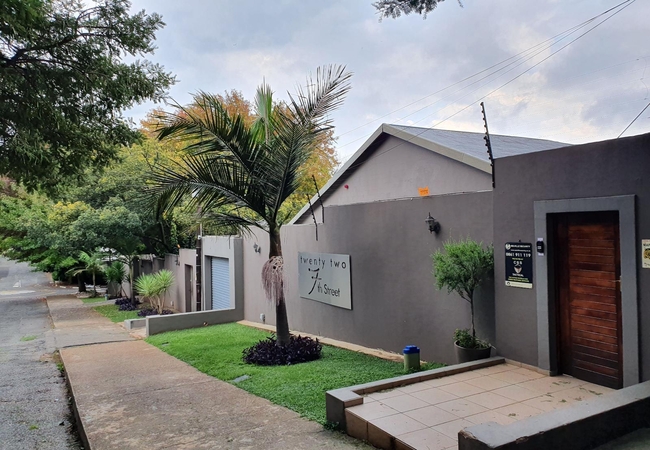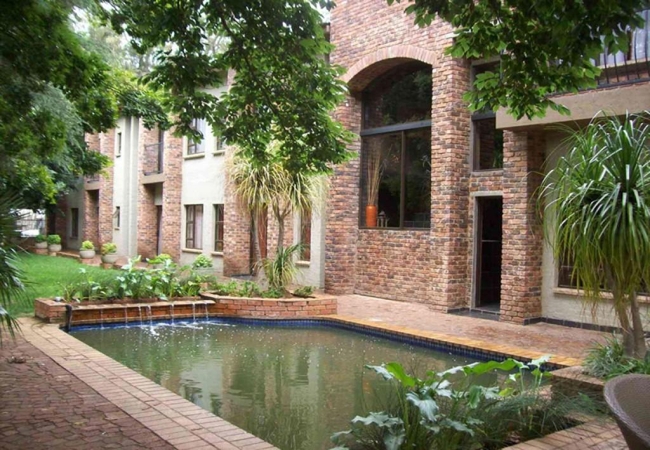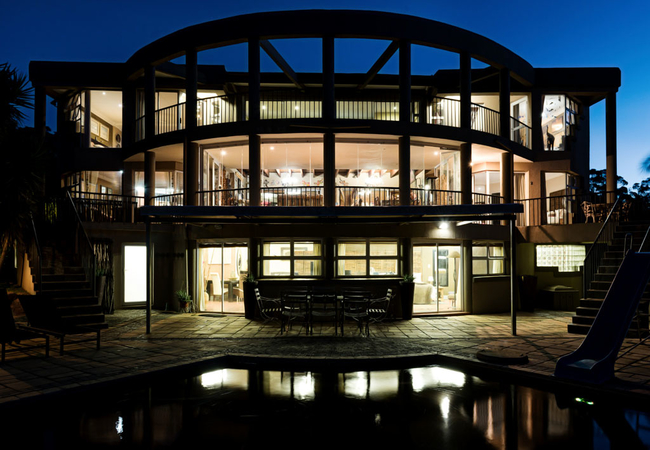Fordsburg, Johannesburg
Fordsburg is known as Johannesburg's 'Little India', its streets awash in bold colours, the heady smells of incense and spices, and the attraction of bargains wherever you look.
Today it has a pulse of its own. Halaal restaurants line the roads, the Oriental Plaza (created by the apartheid government as a shopping centre for Indian-owned shops) is a major attraction, and the area on Market Square, redeveloped in 2009, adds a further element to draw the crowds.
Fordsburg lies close to other precincts in the inner city that have undergone a recent fashionable revival (Newtown, Braamfontein and Maboneng precincts in particular).
Fordsburg, however, continues to flirt with inner-city decay, a far cry from Maboneng, but nonetheless influenced by and frequented by those who want to reclaim the city's inner city from the decline into which it slumped. Fordsburg is one of the most historic areas of Johannesburg. It has been around since the late 1800s, one of the earliest areas laid out by private developers.
This area north-west of the city was designated 'native location' and meant for 'non-white' people. There were three racial areas: Indians lived just north of Fordsburg (this was then demolished in 1904 to make way for Newtown), Cape Malays from Cape Town settled north-west of Fordsburg in Pageview (forcibly removed in the 1970s to Lenasia) and Fietas, and poor whites, who worked on the city's gold mines just south of Fordsburg, settled in Brickfields (later demolished) or Burghersdorp.
As a consequence, Fordsburg was one of few multicultural and multiracial suburbs. It was bound to find itself involved in the strife of apartheid.
Much of the suburb was destroyed during various upheavals - the Rand Rebellion (Battle of Fordsburg Square) of 1922 (during which the market building was so badly damaged it had to be demolished), the Defiance Campaign of 1952, and the forced removal of Indians from Pageview in the 1970s.
At the same time as forcing Indians out of their homes, the government destroyed the buildings along 14th Street used by many of as a trading area, forcing them into the Oriental Plaza.
Post apartheid there has been a flow of, predominantly Muslim, Middle Eastern, Asian and African residents to the suburb. With them has come their food and customs. As a result, venturing further into the neighbourhood than the Oriental Plaza has become a popular Saturday night pastime.
Best time: the Saturday weekly night market (Mint Street, Fordsburg) – food, costume jewellery, clothing, and spices.
In the vicinity
Hotels & other accommodation options

7th Street Guest House
7th Street Guest House is located at the foothills of the ancient Melville Koppies on the corner of 7th Street and 7th Avenue, Melville. We striv...

24 on Vrey Boutique Hotel
At 24 On Vrey Boutique Hotel you can expect personal service in an intimate atmosphere. Accommodation is offered in luxury or honeymoon suites, f...

African Moon Corporate House
African Moon Corporate House welcomes you to a luxurious and comfortable stay only 10 minutes from Johannesburg International Airport. Situated i...

Fourways Guest House
Designed for a simple yet cozy experience, Fourways Guest House provides a relaxed and peaceful atmosphere. Each room is thoughtfully furnished w...

Soweto Boutique Hotel
For both corporate and recreational travellers, Soweto Boutique Hotel presents a sophisticated yet economical accommodation choice that maintains...

Queens Place
Queens Place offers accommodation in the popular area of Kensington. From here you are within easy reach of a number of top attractions as well a...

Glenda's Guest Suites
Glenda’s Guest Suites is a tranquil haven within the secure and picturesque equestrian estate of Beaulieu, Midrand. This 4-star guesthouse primar...

Six Valk Avenue Guest House
Situated in Fourways, Six Valk Avenue Guest House offers accommodation within easy reach of many attractions and activities. It is ideal for coup...

Pine Valley
Situated on 10 acres of tranquil surrounds, Pine Valley offers secure accommodation. We can accommodate up to 52 sharing and located just five mi...
Things to do in the area

City Sightseeing Joburg & Soweto
City Sightseeing Joburg and Soweto is a fun and fascinating Red City Tour and Soweto Combo Tour in red double-decker buses along an awe-inspiring...

The Bioscope
Independent cinema is given a new face in the form of The Bioscope. It is aptly positioned in the heart of the City of Gold, Johannesburg, where ...

Fordsburg Flea Market
The historical suburb of Fordsburg comes alive in an explosion of colours, flavours and the friendly smiles of the vendors at the Fordsburg Flea ...

Oriental Plaza
Fordsburg is a charming historical suburb in Johannesburg (the commercial and retail capital of Gauteng), acclaimed for its rich history and its ...

Lal Qila Restaurant
The Lal Qila themed restaurant is located at the Palm Continental Hotel in the City of Gold, Johannesburg. Although it is perched in the commerci...

Victoria Yards Market
The Victoria Yards Market is held on the first Sunday of every month and makes for a really great day of quirky innovation for anyone that is enj...
Noteworthy attractions

Crown Mines Golf Club
South Africa is famous for its gold, and Crown Mines Golf Club is built in genuine mining country, just a few kilometres southeast of central Joh...

Observatory Golf Club
Observatory Golf Course is one of the less well known Johannesburg courses, but just as good as many of its more famous neighbors. A sophisticate...

Randpark Golf Club
With two very distinct but different golf courses, Randpark offers golfers of varying ability an unforgettable experience on two of the finest an...

Royal Johannesburg Golf Club
The World Atlas of Golf, which lists the great courses and how they are played, features just two South African clubs on its hallowed pages. One ...

OR Tambo International Airport
Formerly officially known as Johannesburg International Airport, the OR Tambo International Airport is a large airport near the city of Johannesb...

East Rand Flea Market
Just outside Johannesburg in Boksburg, the East Rand Flea Market lies right next to the East Rand Mall, and as a result, is open just about all w...

East Rand Mall
The popular East Rand Mall takes full advantage of the prime position of this area and offers a variety of restaurants, boutiques, chain stores a...

Absa Money Museum
Home to the largest collection of money used in South Africa's past in the world, Absa Money Museum lies in downtown Johannesburg on Troye Street...

Apartheid Museum
The Apartheid Museum is the story of the triumph of the human spirit over adversity. Beginning in 1948, the white elected National Party governme...
Find accommodation in Fordsburg
FIND / South Africa Accommodation / Gauteng Accommodation / Johannesburg Accommodation / Fordsburg Accommodation
